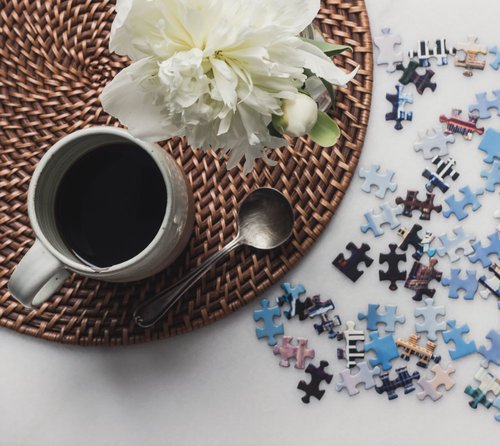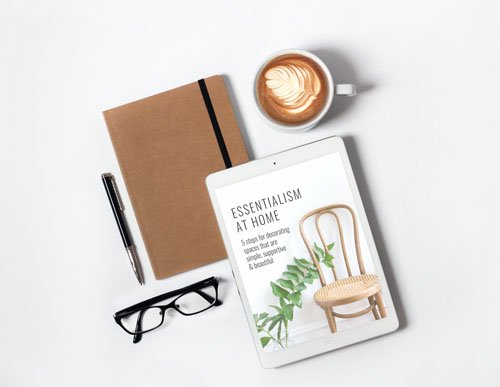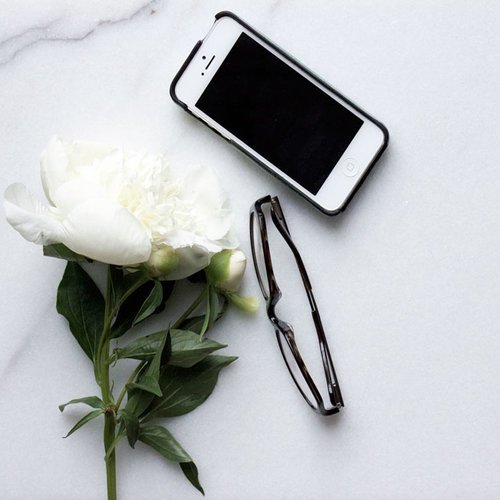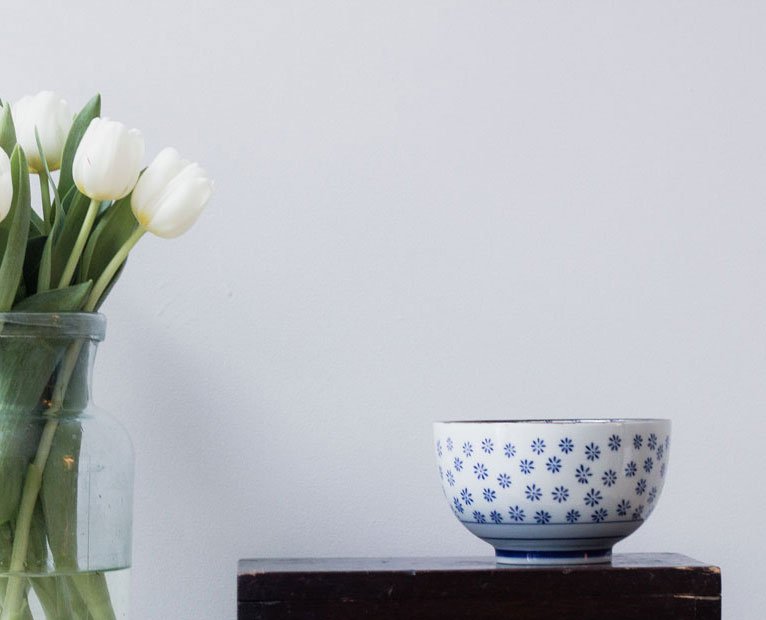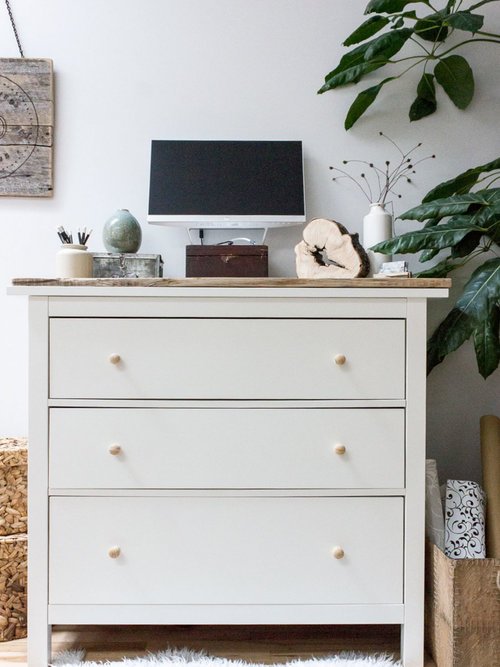How Anxiety Led Me To Essentialism
Anxiety is something that many of us — myself included – struggle with. It’s so common these days to hear of friends and coworkers who are trying to deal with anxiety themselves or with their loved ones.
Anxiety is defined as a mental condition characterized by an inability to stop worrying about the future, to the extent that day-to-day life can be affected. It can also cause serious physical symptoms such as insomnia, dizziness, palpitations, high blood pressure, nausea, panic attacks and more.
My guess is that anxiety seems to be so commonplace now partly because of how we've become more isolated and less communal in how we live. We bury ourselves in our phones and screens instead of talking to one another. We live separately instead of in a home with multiple generations - or multiple friends - under one roof. We too often shelter inside behind closed doors and never get to know our neighbors. Even within our own walls, we too often spend our evenings separately working or playing on our phones and computers instead of enjoying one another. We do more things but be with each other less.
The doing more part is also, I believe, a big part of the rise in anxiety. We're constantly over-committing ourselves by doing and wanting more, more, more - leaving little time to be present and enjoy just living.
About ten years ago I began experiencing chronic anxiety. I was obsessively consumed with worry and fear about possible future events or my health or my performance. I logically knew that the scenarios I ran over and over in my mind were not rational, but my brain still played its dirty little tricks on me. It led to producing an overabundance of cortisol day in and day out, and I experienced physical effects like feeling nauseated all the time, my heart racing for seemingly no reason, back aches and my hands going numb.
After going to my doctor and running tests that all came back without any hullabaloo, my doctor told me that anxiety was likely the cause of all of my irritating symptoms and there were some ways I could manage it. These included eating better and getting more daily exercise and practicing meditation and yoga.
I decided that it was time for me take better care of myself and show my brain who's boss. I practiced being mindful more often and slowed down my habit of always keeping busy. I began eating better by moving toward a plant-based diet and I started walking outdoors every single day.
I also started reading personal development books that I thought might help. Eckhart Tolle’s A New Earth turned my world around. Learning to live in the present and release my ego and its fears was immediately helpful in helping me not be so prone to worry. I also rediscovered my faith in God/the Universe by reading the Bible, Thich Nhat Hahn and Joel Osteen. I began finding peace.
Then I came across a book that helped me go even further in reshaping my life into one that I felt at peace with yet also excited by: Essentialism, by Greg McKeown.
Essentialism is about focusing in on what is essential to living a meaningful life and meeting your goals. McKeown boils it down to this:
"The Way of the Essentialist involves doing less, but better, so you can make the highest possible contribution. The Way of the Essentialist isn’t about getting more done in less time. It’s not about getting less done. It’s about getting only the right things done. It’s about challenging the core assumption of ‘we can have it all’ and ‘I have to do everything’ and replacing it with the pursuit of ‘the right thing, in the right way, at the right time’. It’s about regaining control of our own choices about where to spend our time and energies instead of giving others implicit permission to choose for us."
‘Regaining control of my choices’ is exactly what I needed to do in order to tame anxiety and really thrive once again. I realized that I had been trying to do all things and have all things, and I was therefore constantly worrying about keeping that up and planning out what would happen next. But now, essentialism was giving me permission to let go and focus only on what truly mattered.
I allowed myself time and stillness to figure out what I really and truly want out of life, and then I did only those things that aligned with that vision. I was able to be much more intentional with my time, my thoughts, my money and my energy.
It was a game-changer.
After I began applying essentialism to my life I took it a step further and applied it to my environments as well. I simplified my home so it would be comforting and supportive of my new healthy habits.
I reduced clutter and rearranged furniture so that I was watching less TV and doing more yoga at home.
I organized my kitchen so that it was easier for me to cook healthy meals.
I set up a tea station so that I would more often make soothing herbal tea in the evenings.
I made my bedroom healthy and cozy to encourage better sleep.
I introduced more plants to slow me down and connect more with nature, even indoors.
I increased the amount of light coming into my space by opening up curtains and painting my walls white.
I set up a ‘calm corner’ - a comfy chair beside a window that encouraged me to journal, read, meditate, pray and start a daily gratitude practice.
I refreshed my bathroom to be pretty and ‘spa-like’ with fluffy white towels, lavender bath salts and a candle - which made me take more relaxing baths and enjoy the stillness.
I switched out toxic cleaners and health and beauty products for all-natural versions.
And I kept tech from invading my life while at home by creating a tech station and making rules about tech use at home.
Basically, I created an essentialist home. And I did the same at the office as well. I got amazing results. Don’t underestimate what a calming, supportive environment can do for you!
Anxiety still rears its ugly head every now and then when I'm not on the lookout, but I find that it’s easier for me to control it and not let it possess me for days or weeks on end. Having an environment that helps me stick with good habits and live well certainly helps keep anxiety at bay.
I hope it can for you too!
IMPORTANT NOTE:
I’m not trying to minimize the process of taming anxiety or make it seem easy - it’s different for everyone and I encourage you, if you wrestle with it, to check into all avenues of treatment. See your doctor and/or a professional psychologist or counselor for help. In addition to lifestyle changes, they may explore medication options with you as well. This is a personal journey and you must weigh the options that might work for you. I also recommend looking into the many very good resources online for managing anxiety - this one for example is a good start as is this one.
I’D LOVE TO HELP YOU CREATE YOUR OWN ESSENTIALIST HOME!
Join my email list for a weekly tip plus these 5 steps to get started.
